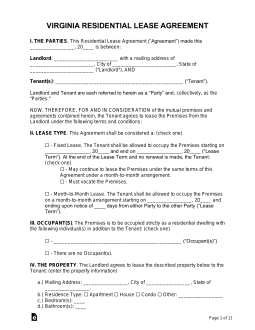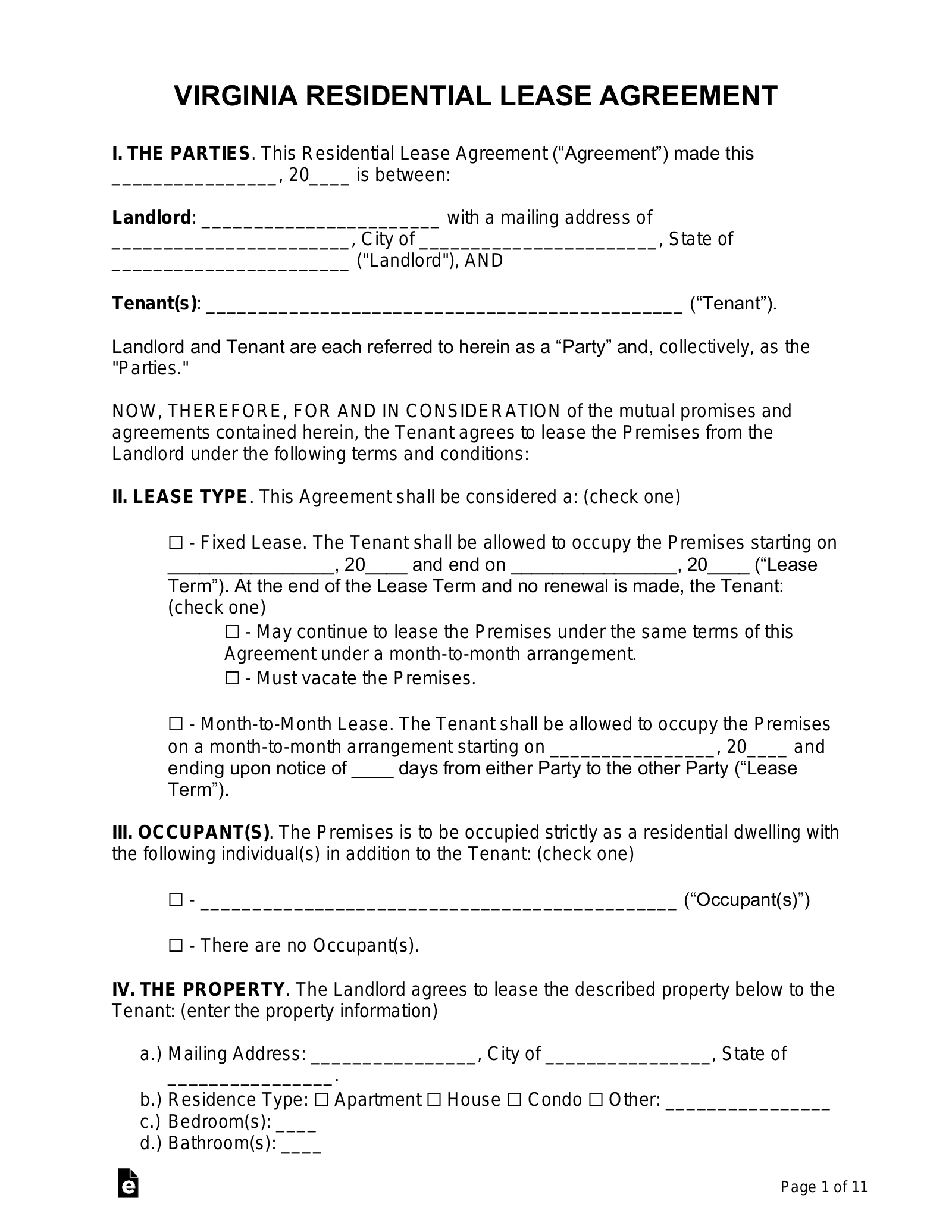Updated October 03, 2023
A Virginia Standard Residential Lease Agreement is a legally binding document used by tenants and landlords to outline the terms of a rental contract. Tenants should review all sections of the document before signing. The landlord should also make sure they are aware of who the tenant is by having them complete a rental application to view their credit report and verify employment. After both parties have agreed to terms, a lease can be signed.
Move-in Checklist (§ 55.1-1214) – Must be completed and given to the tenant within five (5) days of occupancy. The tenant will then have five (5) days after receiving to return to the landlord and dispute any possible items on the report. Information related to mold* must be included in the report (*§ 55.1-1215).
Laws – Virginia Residential Landlord and Tenant Act
Handbook – Guide to Virginia Landlord-Tenant Law


